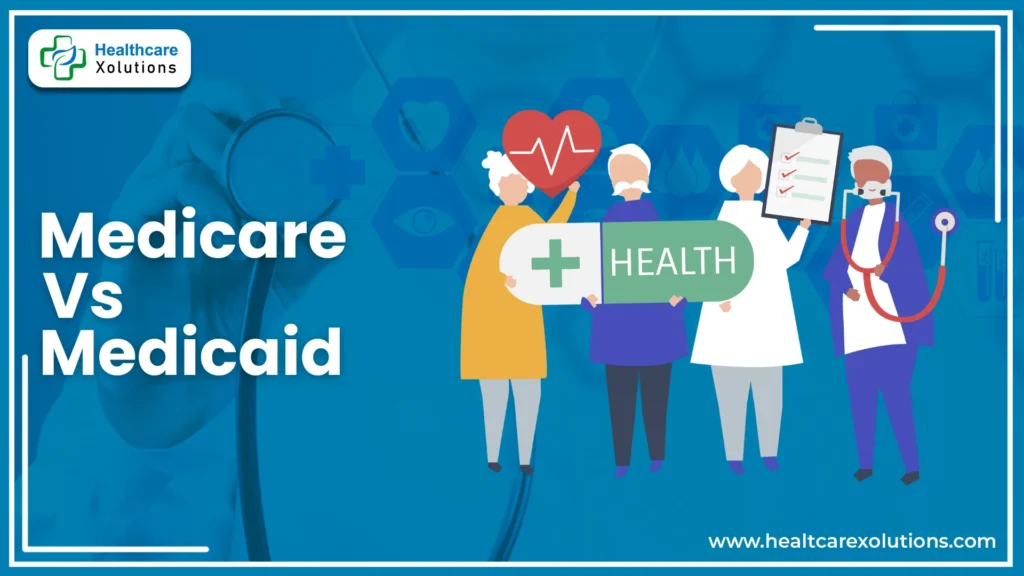Medicare Vs. Medicaid: Understanding Key Differences

Healthcare in the United States can be complex, especially when it comes to government-funded programs. Medicare and Medicaid provide medical coverage to millions, but they serve different populations with distinct eligibility criteria, benefits, and funding structures. Understanding these differences is essential for making informed healthcare decisions.
Key Takeaways:
- Medicare is for seniors (65+) and individuals with certain disabilities, while Medicaid serves low-income individuals and families.
- Medicare is federally funded, while Medicaid is funded by both federal and state governments.
- Medicaid covers additional services not included in Medicare, such as long-term care and dental coverage (varies by state).
- Some individuals qualify for both Medicare and Medicaid (dual eligibility), allowing them to receive enhanced benefits.
Table of Contents
What Is Medicare?
Medicare is a federal health insurance program primarily for:
- Individuals 65 and older
- People with qualifying disabilities
- Those diagnosed with End-Stage Renal Disease (ESRD) or Amyotrophic Lateral Sclerosis (ALS)
Medicare Parts and Coverage:
- Part A (Hospital Insurance): Covers hospital stays, skilled nursing, hospice, and home health services.
- Part B (Medical Insurance): Covers outpatient care, doctor visits, and preventive services.
- Part C (Medicare Advantage): Combines Part A and B, often including dental, vision, and prescription drug coverage.
- Part D (Prescription Drug Coverage): Helps pay for prescription medications.
Medicare is funded through payroll taxes, premiums, and federal revenues. Most people qualify for free Part A if they have worked and paid Medicare taxes for at least 10 years.
What Is Medicaid?
Medicaid is a joint federal and state program that provides healthcare coverage for low-income individuals and families. Each state sets its own rules and benefits, but Medicaid generally covers:
- Hospital and doctor visits
- Nursing home care and long-term services
- Home-based care and community services
- Preventive care and mental health services
- Prescription drugs
- Dental and vision care (varies by state)
Funding: Medicaid is funded by both federal and state governments, and states administer the program based on their needs and budgets.
Medicare Vs. Medicaid: Key Differences
| Feature | Medicare | Medicaid |
| Eligibility | Age 65+ or certain disabilities | Low-income individuals and families |
| Coverage | Hospital stays, outpatient care, prescription drugs | Comprehensive healthcare, including long-term care, dental, and vision |
| Administration | Federal program | Joint federal and state program |
| Funding | Payroll taxes, premiums, federal revenue | Federal and state government funding |
| Costs | Premiums, deductibles, and co-pays | Low or no cost (varies by state) |
Can You Have Both Medicare and Medicaid?
Yes, some individuals qualify for both Medicare and Medicaid, known as dual eligibility. This provides additional benefits such as:
- Medicaid covering Medicare premiums, deductibles, and co-pays.
- Access to long-term care services not covered by Medicare.
Conclusion:
Medicare and Medicaid are essential programs ensuring that seniors, disabled individuals, and low-income families receive affordable healthcare. While they serve different groups, dual-eligible individuals can access both programs for enhanced benefits. Understanding their differences can help you determine which program best fits your healthcare needs.
FAQs:
Can you have both Medicare and Medicaid at the same time?
Yes, dual-eligible individuals receive Medicaid assistance to cover Medicare-related costs.
Do Medicare and Medicaid cover the same services?
No. Medicare covers hospital stays, outpatient care, and prescriptions, while Medicaid includes additional services like long-term care, dental, and vision (varies by state).
How do I apply for Medicaid?
You can apply through your state’s Medicaid office or online via the Health Insurance Marketplace.
Does Medicaid cover long-term care?
Yes, Medicaid covers long-term care services, including nursing homes and home-based care, which Medicare does not fully cover.
